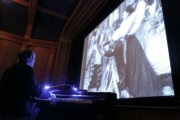Do you know what your teen is drinking? If they’re enjoying coffee, energy drinks and bubble teas, they might be drinking too much caffeine.
“I see teens going on group dates to coffee shops and they have a favorite coffee drink that they enjoy,” said Dr. Christina Brown, a pediatrician with Kaiser Permanente. “They don’t really realize how much caffeine is in it.”
Brown points to a recent national survey by the C.S. Mott Children’s Hospital in Ann Arbor, Michigan. According to its findings, 1 in 4 parents say their teen consumes caffeine every day, or
nearly every day.
Brown urges parents to understand the dangers that too much caffeine can pose for young people.
“I really see a lot of children with sleep issues these days,” she said. “So, the first thing I ask about is how much coffee or caffeine they could be consuming.”
In addition to sleep issues, Brown said the stimulant can increase a teen’s heart rate and anxiety, and also cause reflux in some children.
And many times, parents aren’t aware of how much caffeine teens are consuming because much of it can be hidden, especially in desserts and specialty drinks like Boba teas.
“Are they going for that chocolate ice cream before bed?” Brown said. “There’s a lot more caffeine in coffee compared to chocolate — but it all adds up. Especially if you’re having it regularly.”
Among the reasons teenagers say they reach for caffeinated drinks: They’ve become a favorite beverage, their friends drink them or they use caffeine to stay awake.
“I hear about teens having coffee or soda after school, and they’re feeling tired at the end of the day and about to settle into their homework,” said Brown, who recommends “trying to go for a walk, or drink some ice water instead of those caffeinated drinks.”
The American Academy of Pediatrics discourages teenagers from consuming drinks with caffeine altogether. According to the Mott report, “other experts suggest a limit of 100 milligrams per day for teens.” Some popular energy drinks can contain about three times that amount of caffeine — or more — in a single can.
Brown advises parents to talk with their children about the dangers of too much caffeine. And she tells teens to kick the habit slowly.
“You don’t want to go cold turkey,” she said. “And if you’re drinking a lot of caffeine, you could end up with some withdrawal headaches. Just each day, try to drink a little bit less until you’re able to avoid it altogether.”
Get breaking news and daily headlines delivered to your email inbox by signing up here.
© 2024 WTOP. All Rights Reserved. This website is not intended for users located within the European Economic Area.







